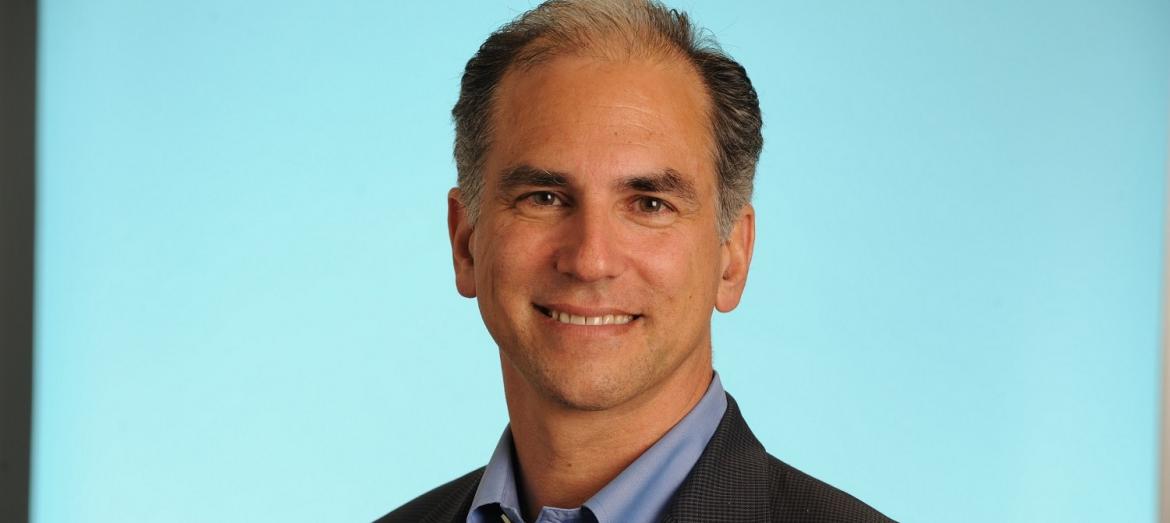
Dr. Robert S. Kahn
Dr. Robert S. Kahn is already a veteran in harnessing the power of data to break down the usual silos separating clinicians and social service providers. His work at the Cincinnati Children’s Hospital Medical Center (CCHMC) over the past ten years has pioneered more effective ways doctors can help families address the root causes of childhood asthma.
By geocoding the home addresses of each of the children admitted to the hospital for asthma annually, Dr. Kahn was able to identify asthma hotspots in the city, which illuminated profound disparities in asthma rates between wealthier and poorer neighborhoods in Cincinnati. He and his team discovered that a major underlying driver of asthma incidence in these hotspots was poor housing quality.
To address these disparities, Dr. Kahn built a partnership with the Legal Aid Society, situated within the hospital itself, to help families gain access to legal advocates who could hold landlords accountable for housing maintenance and repairs. Now, referrals to Legal Aid are completely integrated into CCHMC’s electronic health records system, so pediatricians at the hospital can refer their patients just as they would to any other medical specialist. Physicians can even refer patients to a housing inspection, signaling to the Cincinnati Health Department to send home inspectors to address housing concerns with the landlord.
Dr. Kahn and his colleagues at CCHMC are continually pushing the boundaries of what is possible in precision public health. They are developing data-driven community partnerships with organizations as diverse as Freestore Foodbank, Kroger Pharmacy, and Cincinnati Public Schools on issues ranging from food insecurity to child injury to mental health. As Dr. Kahn himself has said, “To me, the bottom-line message was, ‘We have to be about health, not just healthcare.’ And, clearly, the only way to begin to achieve those goals was for us to understand where the highest levels of need were and who in the community could help join us as partners.”
To expand the impact of their work beyond Cincinnati, Dr. Kahn and his collaborators have joined and helped inspire All Children Thrive (ACT), an ambitious national network of communities, cities, counties, and states that aims to use innovative partnerships to improve children’s health. Led by Neal Halfon, director of the UCLA Center for Healthier Children, Families and Communities, ACT is developing new models to drive systemic change in how we understand child health and is designing a roadmap to realize that transformation on the ground.
By engaging with medical and social service providers, community organizations, and government agencies, ACT works to facilitate a transition from our current healthcare system, focused on reducing morbidity, to a system that instead emphasizes optimizing health and embracing cross-sector collaboration to promote a culture of health.
In May 2016, ACT brought together representatives from Columbus, Cincinnati, San Diego, Denver, and East Palo Alto to discuss concrete ways they could learn from each other’s efforts to promote child health. City teams explored how they could push forward community partnerships, build sustainable financing models, and implement family-centered design processes to maximize impact. ACT is in the process of expanding its national network, and Delaware, Denver, Hartford, and San Francisco’s Child Health Equity Collective are considering how ACT could accelerate their progress toward building a next-generation child health system.
This growing network of ACT cities will enable the sharing of best practices across sites and maximize their impact. In addition, by piloting new ways to measure, display, and share data that capture the complex factors contributing to child health, ACT hopes to catalyze improvements across the country to ensure that all children thrive.
Dr. Kahn presented his work addressing childhood asthma at the recent Precision Public Health Summit held at UCSF. You can find his full talk here.
